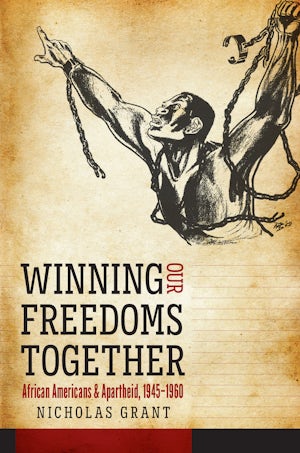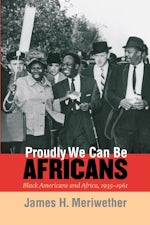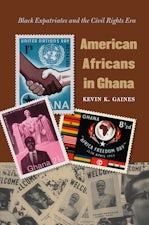Winning Our Freedoms Together
African Americans and Apartheid, 1945–1960
By Nicholas Grant
324 pp., 6.125 x 9.25, 11 halftones, notes, bibl., index
-
Paperback ISBN: 978-1-4696-3528-6
Published: November 2017 -
Hardcover ISBN: 978-1-4696-3527-9
Published: November 2017 -
E-book EPUB ISBN: 978-1-4696-3529-3
Published: October 2017 -
E-book PDF ISBN: 979-8-8908-4977-9
Published: October 2017
Justice, Power, and Politics
Buy this Book
- Paperback $35.00
- Hardcover $99.00
- E-Book $19.99
For Professors:
Free E-Exam Copies
Awards & distinctions
2018 Arthur Miller Centre First Book Prize, British Association for American Studies
This study shows how African Americans and black South Africans navigated transnationally organized state repression in ways that challenged white supremacy on both sides of the Atlantic. The political and cultural ties that they forged during the 1940s and 1950s are testament to the insistence of black activists in both countries that the struggle against apartheid and Jim Crow were intimately interconnected.
About the Author
Nicholas Grant is a lecturer in American studies at the University of East Anglia.
For more information about Nicholas Grant, visit
the
Author
Page.
Reviews
“This fascinating book should be read by all interested in transnationalism, black internationalism, and the struggle against apartheid.”-Choice
“A compelling and detailed study of black internationalism during the early Cold War period.”--H-Net Reviews
“Many historians have examined the relationship between the American civil rights movement and the struggle against apartheid, but Grant’s book offers a number of new perspectives on the issue.”--The Journal of Southern History
“Challenge[s] the declensionist narrative of black anticolonial activism during the early Cold War . . . . Adventurous.”--Diplomatic History
“Contributes to the growing corpus of literature on black Americans and the international apartheid movement.”--Journal of American History
“Winning Our Freedoms Together has many strengths, and Grant’s final section is particularly compelling.”--American Historical Review




